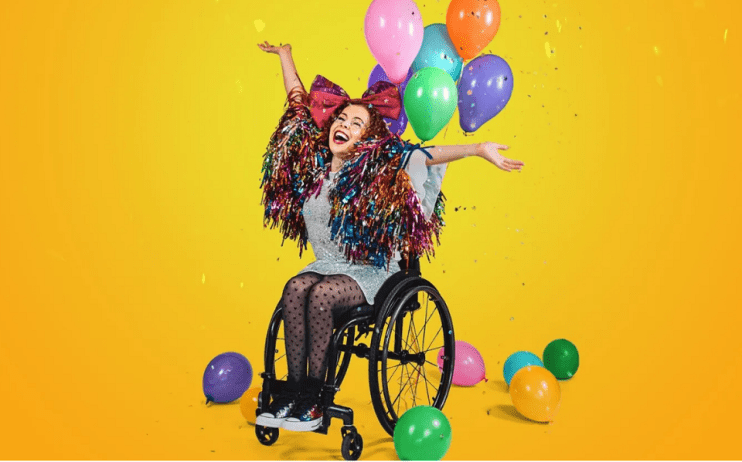Reasons You Should(n’t) Love Me’s Amy Trigg on self love, laughter and disabled representation

This interview is part of our The Lowdown interview series. This time, we speak to Amy Trigg, the first wheelchair user to graduate from a performance course at Mountview Academy of Theatre Arts, about her one-woman show.
WHAT’S THE LOWDOWN ON YOUR ONE-WOMAN SHOW?
The show is about love in all different forms. Self love, platonic love. The whole thing is about a woman navigating her early adulthood while reflecting on the trauma and joy of her youth. I hope people go away with questions, like, what does self acceptance look like?
YOU’VE JUST BEEN ON TOUR. HOW HAVE AUDIENCES BEEN?
It’s so nice seeing how differently people respond to my show. Some people are scared of laughing at certain points – they don’t know if they have ‘permission’ to laugh. The best shows are when people in the audience have a similar lived experience to the character so they feel like they have permission to laugh. I hope everyone finds something of themselves in the play but there’s something really special about reaching people who don’t see themselves or their lives represented on stage. There’s a few bits early on where if I get a few laughs or sounds of acknowledgement I’m like, ah, I think that might be a wheelchair user in the audience!
Disability representation feels like it’s perhaps a few steps behind. I’m quite positive about where we are, but I do think it’s hilarious that we get thrilled when we see a disabled extra on television.
Amy Trigg
WHERE DO YOU THINK WE’RE AT WITH DISABLED REPRESENTATION?
I graduated in 2013 and in the first few years it was almost impossible for my agent to get me seen for roles that weren’t disabled, and there weren’t that many disabled characters. A project would decide to include a disabled character so they would just see everyone disabled in the industry. It would be a room of people with varying different disabilities, differing ages, different sexes, and you just think you’re not auditioning me as an actor, you’re auditioning me for my disability.
That was really hard for the first few years. In general, disability representation feels like it’s perhaps a few steps behind. I’m quite positive about where we are, but I do think it’s hilarious that we get thrilled when we see a disabled extra on television. That we’re still excited shows we’ve got a way to go. Luckily my acting agent just kept knocking on doors and getting me in rooms. A sign that things have changed is that I’ve done TV roles recently that weren’t written for a disabled actor, but now they see me, and hire me, so things have changed massively.
YOU WERE AN ACTOR FIRST. HOW DO YOU FIND WRITING?
I always enjoyed writing but I never really thought I was smart enough. I had no idea how you went about IT and now I’m developing projects for TV. I never would have thought I’d be doing that a few years ago. I’m wary of five year plans now, because if I’d made a plan five years ago I never would have thought I’d be doing what I’m doing now.
Reasons You Should(n’t) Love Me opens at the Kiln Theatre on 5 November
